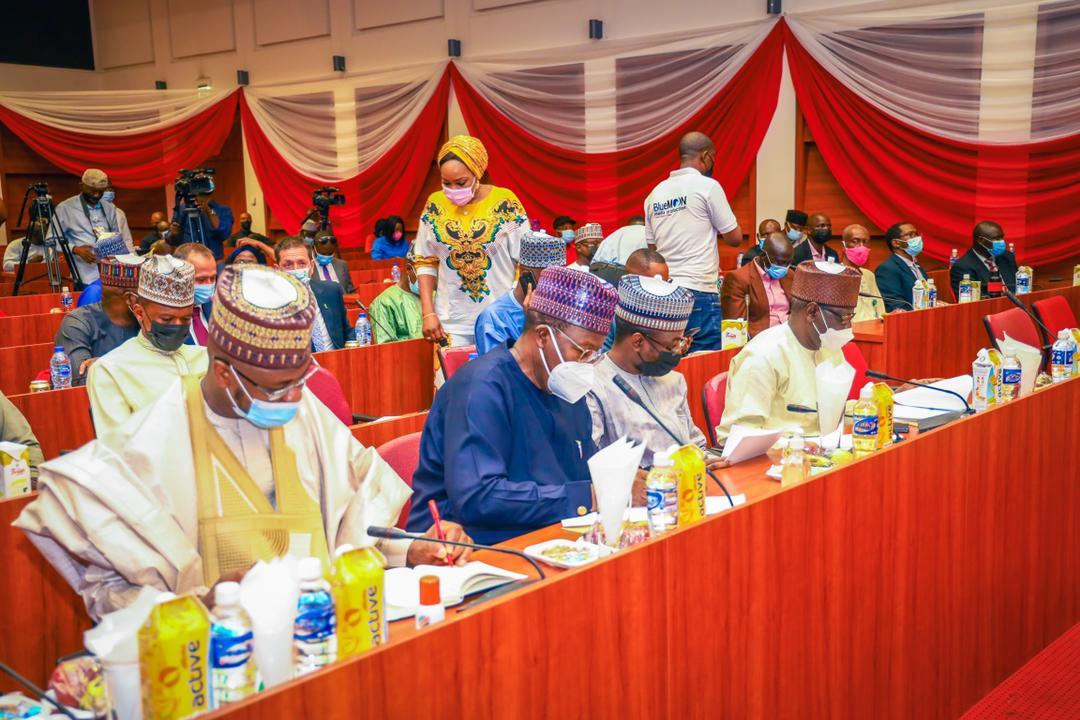Understandable explanations were on Friday in Lagos, given by the Director General of National Broadcasting Commission (NBC), Mallam Is’haq Modibbo Kawu on why Nigeria could not completely switch over from analogue to digital TV broadcasting today, June 17, 2017 as earlier announced by the federal government.
Digital Switch Over (DSO) is a global movement driven by technology to migrate from current analogue TV experience where viewers use antennas to search for signals to a more crisp screen viewership and multiple channels access using Set Top Boxes (STBs) connected to TV.
The transmission plan and directive was handed down to nations by the International Telecommunications Union (ITU) to make plans to switchover as soon as possible so that more frequencies that are now very strategic for broadband penetration are released as dividends.
Investigations by Business Hilights showed that even though Nigeria has started but is yet to fully migrate, no ECOWAS state currently has neared Nigeria’s current level of delivery.
Moreover, several African nations, having seen feats and mileages already achieved by Nigeria, are coming to learn from the NBC DSO delivery architecture. Some of them include Sierra Loane, Ethiopia, Zambia and others.
Explaining more on why Nigeria is making progress that are worthy of emulation by other African countries, DG of NBC said “Many have misconstrued the process, assuming that on that date, (June 17, 2017) almost like a magic wand, Nigerians would wake up to find that we have switched off analogue and switched on digital television, all over our country”.
“But as I have always informed Nigerians and journalists, June 17th, 2017, is a BENCHMARK DATE for the digital switchover in our country. Our mission remains constant: to switch off analogue completely when we achieve up to 95 percent access to Free Digital Television content across our country.
Continuing, he noted that “All Nigerians are entitled to access to information, irrespective of class, creed or location; and the new technology of digital broadcasting is already enhancing access in a most revolutionary manner. That would soon become a nationwide experience for all Nigerians”.
Kawu assured that NBC will remain optimistic, hinting that “by the end of the year, at least half of the country would have access to Free Digital Television content”.
“Our timeline plan is to execute a phased implementation of 6 states, at a period. So as we conclude the six states currently in progress, we would choose another set of six states, reflecting the geo-political zones, for the next phase, until the entire country is completely covered.
“Following the successful launch of the Abuja switch over last December, we announced a plan to launch in one state from each of the six geo-political zones of Nigeria. Consequently, the following states were chosen for the next phase of the project: Kaduna in the Northwest; Gombe in the Northeast; Kwara in the North Central; Osun in the Southwest; Delta in the South-South and Enugu in the Southeast.
“I am happy to inform you that at our last stakeholders’ meeting last week, the decision was taken to launch in Ilorin Kwara state by the end of June; Kaduna by the beginning of July, these follow the completion of the installation of the transmission facilities in these locations; and subsequently, we would launch Osogbo in Osun; Enugu in Enugu state; and then Delta as well as Gombe state.
“These decisions were taken when issues around the financial commitments of the NBC to its various stakeholders had not been clearly settled. But we proceeded with the faith that the DSO was just too vital to our national progress and should not face any more delays.
He was upbeat that in respect of a specific switchover date, the countries of the ECOWAS sub-region would re-assess the issue of deadline, given that all member countries have not met the June switchover deadline.
He was however quick to point out that “It must be emphasized that the delicate nature of the DSO process, has always obliged countries to carefully manage the process to avoid problems. Most countries of the world have had to adjust their switch off dates”.
“Let me re-emphasize that one of the fears about delayed DSO transition, is the problem of trans-border signal interference from analogue transmitters. The good news is that our neighboring countries have not achieved anything close to what Nigeria has been able to do so far. As a matter of fact, none of the countries in the ECOWAS sub-region has a DSO process that matches what we have achieved in Nigeria.
In his further submission, Modibbo Kawu averred that “The DSO process is a huge financial, technical and logistical challenge. Switching on a huge country like Nigeria, requires tremendous financial commitment”.
“We would like to thank President Muhammadu Buhari, who stated last December, through Vice President, Yemi Osinbajo, that Nigeria is irrevocably committed to the DSO. We have continued to receive the support of the Federal Government and we would like to place on record too, the tremendous support of the Senate and the House of Representatives.
“To accelerate the progress of work, we are engaging with the Nigerian Governors’ Forum, so that the states can partner with us, especially in the procurement of Set-Top-Boxes as well as critical assistance for the installation of transmission systems by our signal distributors. Let me assure you all, and all Nigerians, that the NBC and the stakeholders of the DSO process are committed to achieving the completion of the process.
He called on the Nigerian media to help raise awareness on DSO and further assured that NBC “would intensify publicity so that Nigerians can better appreciate the significance of the process and how far we have come, and what more mileage needs to be covered”.
It would be recalled that the NBC since the appointment of Kawu on May 25, last year, his leadership has succeeded in delivering the seamless switchover of Jos and Abuja cities, met financial commitment to stakeholders, appointed call centre managers and supervised the importation of 850,000 STBs valued at $26m.
He has also strengthened the confidence of local STB manufacturers in other to meet up the estimated 32 million boxes that will feed the nation when about 95 per cent coverage of digital terrestrial transmission (DTT).









